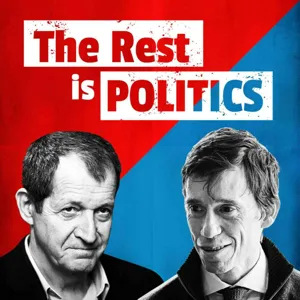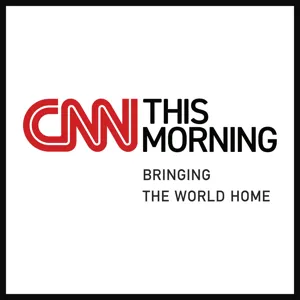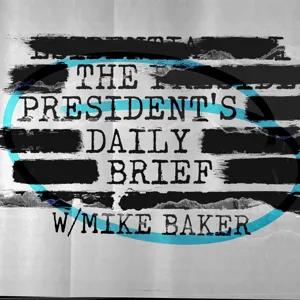Podcast Summary
Columbia University Protests: A Night of Chaos and Arrests: Protests over Israeli-Palestinian conflict escalated into violence at Columbia University, leading to arrests and fear of reprisals. Colleges must balance free speech and safety while considering the long-term impacts of protests.
The tension between the Israeli-Palestinian conflict and campus politics reached a boiling point at Columbia University on April 30th, leading to a violent confrontation between students and law enforcement. The occupation of an administration building by pro-Palestinian protesters escalated into a night of chaos and arrests, leaving many students fearing reprisals. This event underscores the growing intensity of political protests on college campuses and the role of law enforcement in managing them. It's important to note that these are not just impersonal events; students and community members know each other, and the consequences of such actions can have lasting impacts. As colleges grapple with these issues, it's crucial to consider the potential consequences and the importance of open dialogue and understanding. The BBC and Organic Valley remind us of the power of information and ethical practices, respectively, in shaping our perspectives and experiences.
Columbia University: Clashes Between Protesters and Law Enforcement: College campuses see tension between Palestinians' supporters and opponents, leading to encampments and clashes with law enforcement. NYPD intervened at Columbia University, causing confrontations. Balancing protests and unlawful trespass, finding a peaceful resolution while maintaining order and safety is key.
The tension between supporters and opponents of Palestinians has led to encampments on college campuses across the country, resulting in clashes between protesters and law enforcement. At Columbia University, officials attempted to end the encampment, leading to a confrontation between protesters and a large NYPD force. The vulnerability of main buildings to be taken over by protesters is a concern, and while there are measures to deescalate situations, there is a distinction between protests and unlawful trespass. The tipping point for law enforcement intervention depends on the specific circumstances, and the goal is to find a peaceful resolution while maintaining order and safety. The Capital One Venture card, a sponsor of NPR, offers miles rewards for purchases and booking travel to help customers manage their expenses during such times of uncertainty.
Balancing student protests: Expression and order: Universities should listen to students, offer peaceful resolutions, and avoid labeling protesters to deescalate situations and foster an inclusive campus environment.
Colleges and universities should adopt a balanced approach towards handling student protests, providing avenues for expression while also ensuring safety and order. The discussion emphasized the importance of listening to students' concerns and offering peaceful resolutions, as seen at Brown University where protests subsided after the administration agreed to discuss student demands. It's crucial for institutions to avoid labeling protesters as outside agitators or bad actors and instead focus on facilitating dialogue and understanding. By providing a platform for students to voice their ideas, universities can help deescalate situations and foster an inclusive campus environment.
Avoid oversimplifying protests as foreign manipulation: College students are capable of independent thought and should be given credit for their intellectual pursuits during protests, rather than being labeled as 'outside agitators'.
The label of "outside agitator" can be misleading when applied to protests, particularly those on college campuses. While it's true that there may be non-affiliates instigating unrest, it's important to avoid oversimplifying complex social issues as foreign manipulation. Instead, we should acknowledge the role of students in questioning long-standing policies and expressing their own beliefs. While there may be instances of antisemitism and outside influences, it's crucial to remember that college students are capable of independent thought and should be given credit for their intellectual pursuits. The protests are a reflection of societal discord, and addressing the root causes requires a nuanced understanding and a willingness to engage in meaningful dialogue.
Protests on college campuses reflect deeper societal divisions: Protests on college campuses are a symptom of larger societal divisions and foreign policy issues, and a comprehensive solution will take time
While efforts to de-escalate protests on college campuses may be possible in the short term, the underlying issues driving the unrest are deeply rooted in foreign policy and societal divisions. Juliette Kayyem, Belfer senior lecturer at the Harvard Kennedy School of Government, believes that addressing the specific issues at hand may be achievable, but resolving the larger problem will take more time. Protests are not limited to elite colleges but are occurring across the country, reflecting widespread dissatisfaction with US policies and university decisions. Kayyem emphasizes that the current protests are a symptom of larger divisions, and a comprehensive solution will not be found soon.






